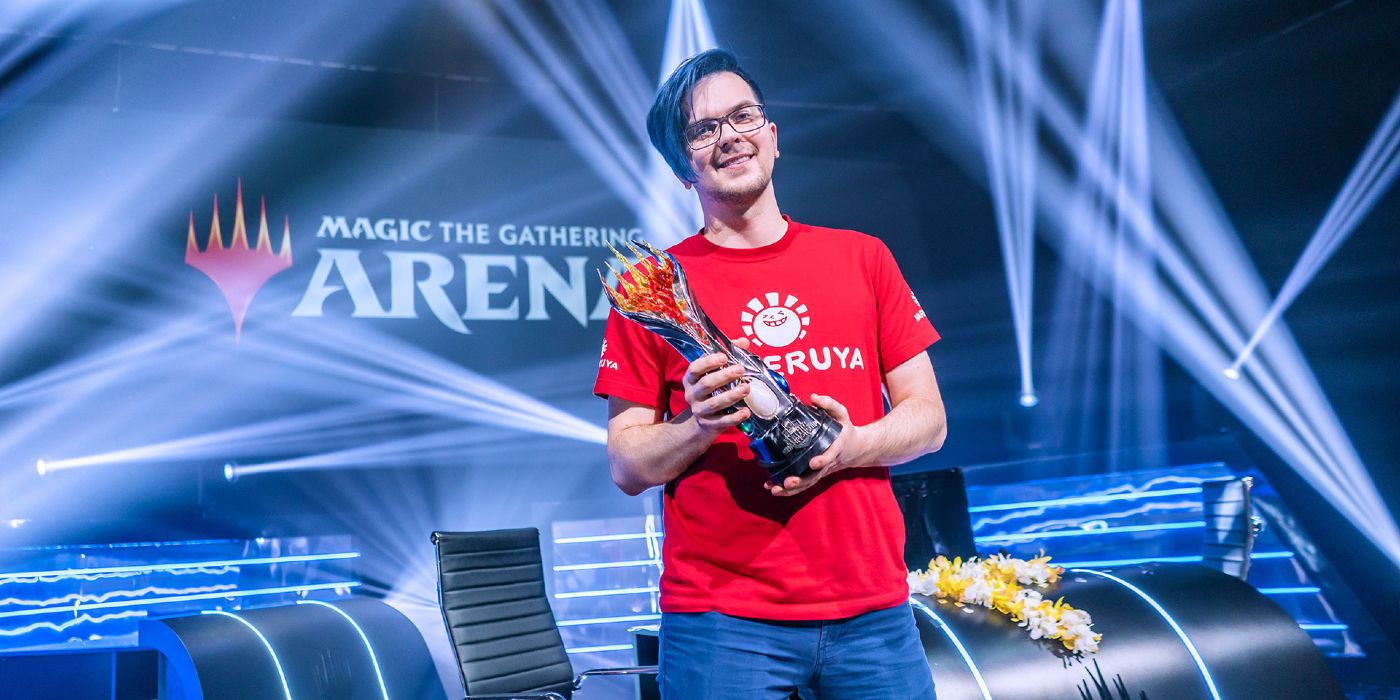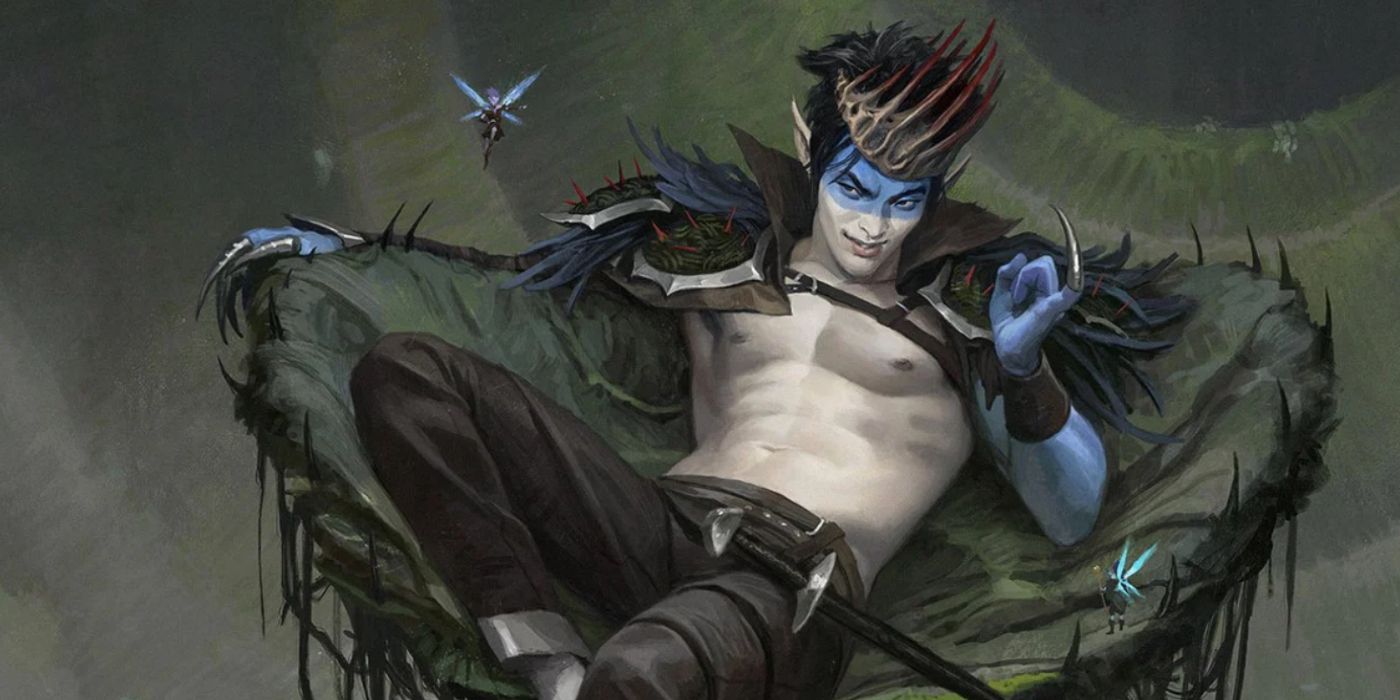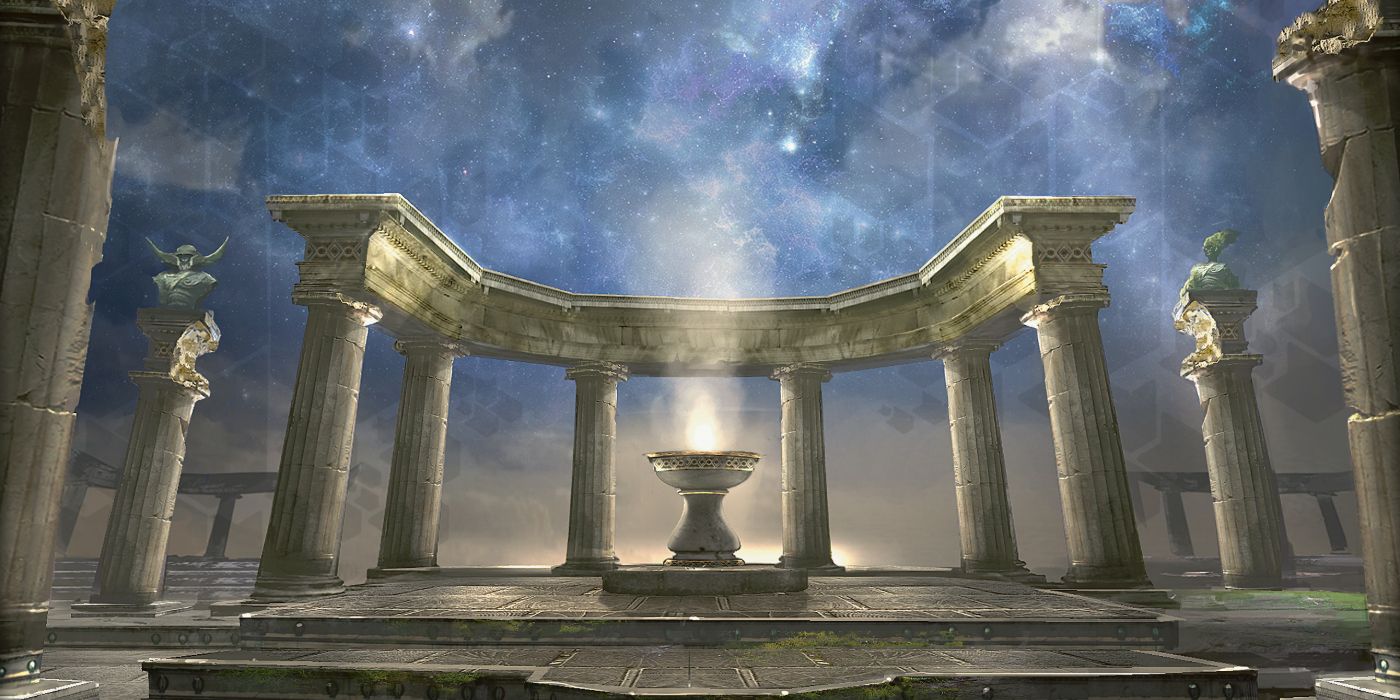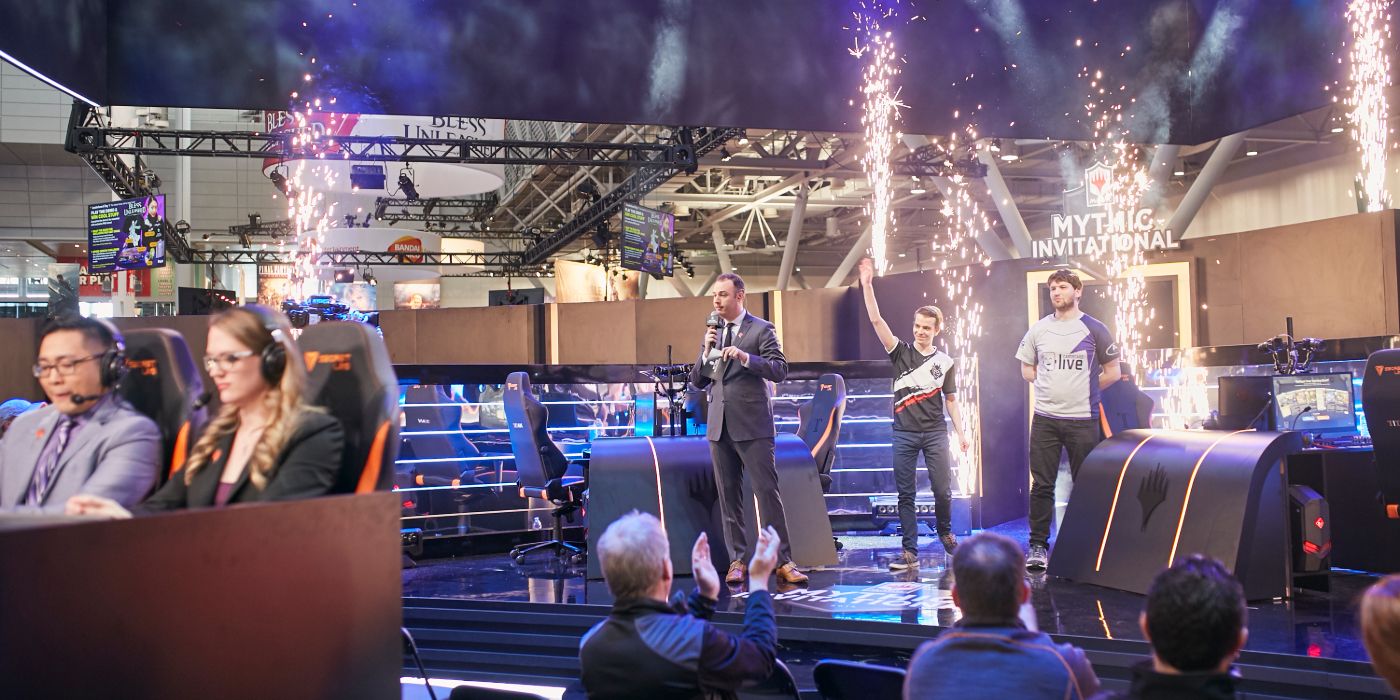On the surface, the progress made by Magic: The Gathering this year leading up to the Magic World Championship XXVI has been staggering. Going from a mostly tabletop offering supplemented by a pretty bare bones online client in Magic: The Gathering Online to a lucrative esport with star-studded invitational tournaments is a vast improvement aesthetically. In a world where League of Legends and CS:GO routinely pull massive viewership numbers on Twitch thanks to the dynamic elements in their play, a card game even coming mildly close to that same reach is a testament to just how fertile the ground MTG Arena planted its flag in really is. For all the issues with Magic: The Gathering's current competitive structure - of which there are many - at the very least, Wizards of the Coast has managed to transform the game's image into a modern one, full of the bells and whistles associated with a high-profile esports title.
How much forced progress is too much, though? It's one thing for a game to naturally arrive at this state, but in the case of Magic: The Gathering, it's been a very deliberate and aggressive migration to a more pronounced digital presence. That's never been more obvious with the recent announcement that the Magic World Championship XXVI will be hosted entirely on the game's MTG Arena client, eschewing tabletop play altogether. Typically, Magic World Championships have been multi-format affairs that test competitors' abilities from several different angles. Given that MTG Arena currently only hosts Standard, the barely-visible Historic format, and Limited excursions populated by bots during drafts, it seems like Magic World Championship XXVI is hurtling toward being a Standard-only affair.
Magic World Championship XXVI Shouldn't Be One Format
If it is, it's a huge mistake from Wizards of the Coast. For a company that has historically struggled to consistently please professional competitors, this is a decision that threatens a trickle-down effect from the top of the circuit to the players slinging cards on their kitchen tables. Magic: The Gathering is an incredibly diverse game that supports a huge number of different formats that appeal to varied demographics. Some players believe Limited is the fundamental Magic experience, with just the same intensity that others believe Commander to be the most fun offering available. Neither player arguing for those formats is wrong - the beauty of Magic: The Gathering as a whole product is that there are so many sub-genres present within it.
Focusing on just Standard feels wrong as a result. Surely there's more to a game that serves millions of players worldwide each year than just a single format - especially one that has been riddled with bannings, the result of which is a reduced number of people actually interested in the format for the foreseeable future. Wizards of the Coast just announced a new format in Pioneer, something that has sparked creativity and discussion amongst players and has created a brand new, more accessible avenue into Magic's eternal (non-rotating) formats. It seems like an easy slam dunk to include that format as part of the Magic World Championship XXVI play, tasking 16 of the world's best players to explore a still-fresh format with a deeper and more powerful card pool, especially because MTG Arena will eventually support Pioneer anyways. Why not get players interested in the format ahead of its debut on the platform?
Tabletop Magic: The Gathering Needs A Spotlight Too
Beyond diversity, however, there's also the fact that Magic World Championship XXVI will inevitably draw some of the gaudiest stream viewership numbers in the game's history. Although previous MTG Arena tournaments have been rightly criticized for inflating viewership numbers using guerrilla advertising tactics, it does seem like each Mythic Championship grows organically in viewership too - if not directly in numbers, then indirectly thanks to increased representation across media coverage. That viewership could be critical for Magic's future, since interested parties who have never seen the game before might be intrigued enough to check it out on Twitch when it's one of the most viewed games of the weekend. There, MTG Arena will shine by hooking would-be planeswalkers with eye-popping visuals and a smoother gameplay experience. However, for those already hooked by MTG Arena, the potential to advertise tabletop's eternal formats has never been more tantalizing.
Showcasing tabletop alongside MTG Arena is a viable chance at growing both platforms - new parties to Arena, and strictly Arena players potentially picking up tabletop to try out new formats. It's not like Wizards of the Coast isn't already attempting this to some degree with the way it includes Arena codes in physical products, but the reverse can also be done.
Instead, the message being delivered here is a concerning one for many of the game's most established fans: Wizards of the Coast is prioritizing digital play so aggressively it doesn't mind not putting a single piece of physical cardboard on camera all weekend. That's a terrifying thought for invested Magic: The Gathering players who don't enjoy Standard or MTG Arena as a whole. Dwindling support for eternal formats is already something that's been criticized during 2019, and the lack of coverage of tabletop MTG gameplay as a whole has been lambasted by those looking for more from a game that used to pride itself on showcasing as much of itself as possible. Maybe times have changed and Wizards of the Coast no longer feels it needs to do it, but no tabletop Magic: The Gathering at its most prestigious tournament of the year sends the wrong sort of message to those who still enjoy everything that comes with playing the game physically in a tournament hall or local store.
What's The Future of Competitive Paper Magic?
One of the biggest elements of Magic: The Gathering is its tabletop atmosphere - the ability to connect players to like-minded individuals, make friends, and engage with a community they feel they belong in. That's something that has brought together pro players, too, who have pursued their dreams alongside friends doing the same for most of Magic: The Gathering's history. That they'll be doing it largely digitally isn't the issue now - it's the fact that it feels like there's no alternative option. The future of competitive paper Magic: The Gathering has been in question pretty well all year, and while Wizards of the Coast has assured players that tabletop play isn't going anywhere, the company's actions have told a very different story. While there's still plenty of time to right the ship, and Wizards of the Coast has been very receptive of listening to consumer feedback in these types of situations in the past, it does feel like Magic World Championship XXVI is a loud declaration of intent, one that could mean the game is changing even faster than fans might previously have realized.
Source: Magic.gg




